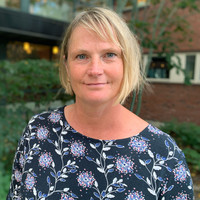Tuesday: "EPIC Africa – Sustainable Water, Energy & Food Pathways for Sub-Saharan Africa"
This seminar will be presented by Professor Viktoria Martin, KTH. Researcher Francesco Gardumi, KTH, will join the seminar.
When: 17:30 to 18:30 (CET). A 45 minute evening seminar at 17:30 to 18:15 (CET) that will follow by a 15 min Q&A.
Where: Teknikringen 1, KTH Campus.
Click to watch this recorded seminar on Youtube
The ‘EPIC’ in the project name emphasizes the impressive beauty, diversity, and potential of the African continent in its human and natural resource endowments. EPIC Africa is a Horizon Europe project that sets out to support sustainable development in sub-Saharan Africa (SSA) by creating new knowledge on development pathways for ensuring clean water, clean energy access, and secure food supply for the future. Using the cases of the Volta and Tana river basins, the EPIC Africa output will define actions to sustainably couple energy, water and food systems that are robust to climate change and socio-economic uncertainties.
About

Viktoria Martin
Viktoria Martin is a professor in energy technology. For the past two decades, her research and development contributions have focused on the abundance of renewable energy, which is challenged by its diverse and fluctuating nature. Harnessing renewable energy and effectively using these sources for our daily demands calls for new energy structures in society. Storage of heat and cold bridges the gap between supply and demand and enables the creation of smart energy networks, focusing on energy services rather than our old tradition of only one form of energy at a time. Recently, she has been appointed as the Director of Internationalisation in Undergraduate Education within the School of Industrial Engineering and Management, KTH.
Francesco Gardumi

Francesco Gardumi currently leads the Horizon Europe project RE-INTEGRATE (Re-Thinking Integrated energy systems strategies), where 8 teams from the African Union and 8 teams from the European Union cooperate in building permanent networks of energy analysts that share energy systems modelling knowledge multi-laterally and with minimized biases. He also leads a collaboration between KTH and the United Nations Department of Economic and Social Affairs (UNDESA) in offering technical assistance to Governments of developing countries in expanding the use of integrated resource assessments for strengthening policy coherence. This expansion of capacity is a central element across several other initiatives and projects he leads KTH’s contribution for.
